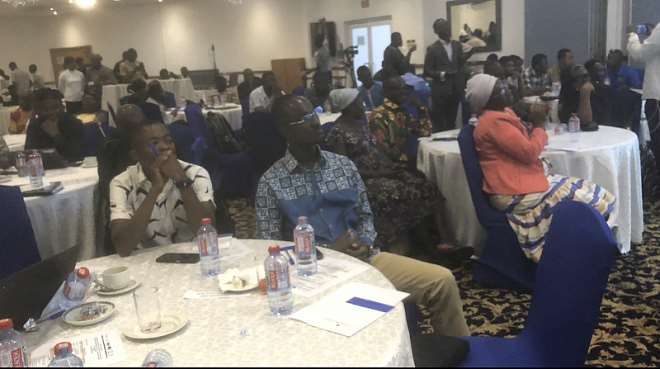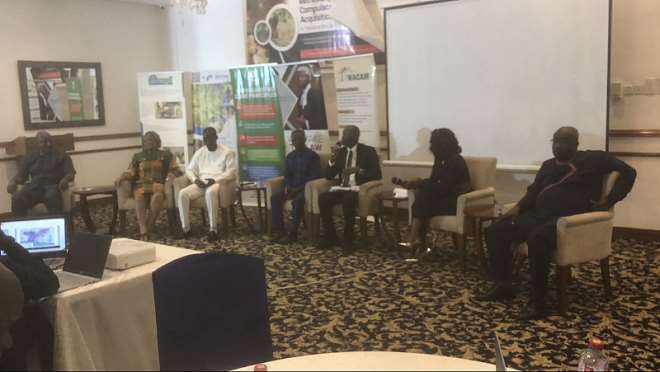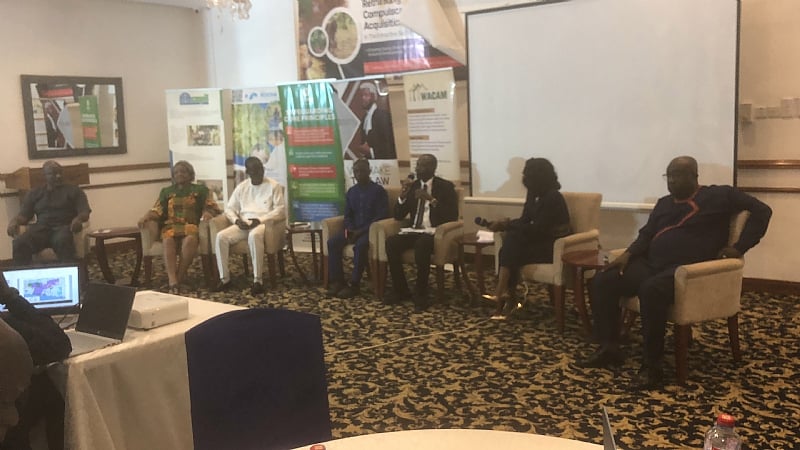The compulsory acquisition of land for mining activities continues to generate tension between mining companies and affected residents in local communities.
In the Ahafo Ano North District, Ashanti Region, community members reportedly continue to face intimidation and arrests from mining companies after their lands were forcefully taken.
Article 20, Sections 1 and 2 of Ghana’s mining laws mandate the government to compulsorily acquire lands when necessary for national development. However, such acquisitions must be conducted under a law that provides for the prompt payment of fair and adequate compensation and grants affected persons the right to seek redress in the High Court.
Mr. Joseph Adu, a community member, recounts how his land and that of others were taken without consultation.
“We should have been part of the process to know the agreement, but nobody came to us. Later, we heard there was a meeting between the chiefs and representatives of the company, and that was it,” he said.
He made this disclosure during a stakeholder engagement organized by A Rocha Ghana, Wacam, BRACE, CEPIL, Merton and Everett, and Oxfam in Ghana under the theme: “Rethinking Compulsory Land Acquisition and FPIC in the Extractive Sector: Ensuring Equity, Environmental Sustainability, and Inclusive Development.”
According to Mr. Adu, some affected community members only became aware that their lands had already been confiscated after their properties were destroyed and allocated to mining companies.
“Lands Commission came to survey our farms in our absence. Some farms we knew were not included were all taken by the government, and our properties were destroyed.”
Even now, Adu says landowners continue to face intimidation, legal disputes, and arrests.
The Lands Commission defended its actions, stating that a letter signed with the consent of chiefs and principal elders was submitted to withdraw the case from court.
However, Mr. Adu criticized the commission for engaging only the chiefs and elders to withdraw the case without properly consulting the affected landowners.
Mr Jonathan Lari Esq., Head of Legal Affairs at the Lands Commission, who was a panel member during the forum, blamed the central government for frequently making land acquisition decisions with mining companies before consulting the commission.
“Sometimes central government takes a decision that goes so far, and then when it backfires, they just prevail on Lands Commission to act within a certain period of time.”
He explained that by the time mining companies engage in the formal compulsory acquisition process, they might have already occupied the land, making it difficult for them to comply with legal procedures.
Stakeholders at the forum urged the government to prioritize Free, Prior, and Informed Consent (FPIC) to protect the interests of local communities.
The United Nations’ 2011 Report defines FPIC as a process that must be free from coercion, intimidation, or manipulation, ensuring that indigenous people receive adequate, accurate, and objective information about any activity in an understandable manner, and agreed on the subject of the relevant decision, following customary laws and practices.
Article 16 of the ECOWAS Mining Directive (2009) mandates FPIC for local communities, and Ghana has adopted its principles.
However, the Lands Commission claims that the central government often bypasses the Minerals Commission’s procedures, leading to the neglect of FPIC before mining operations commence.
Mrs. Hannah Owusu-Koranteng, Associate Executive Director of WACAM, stated that the state has moved beyond legal processes, coercing and using force and manipulation to take lands almost for free.
“There is so much intimidation, especially in the Ahafo area, because their properties were destroyed without their consent and without the payment of compensation and other entitlements.”
She added that community members who try to protect their properties are dragged to court.
Owusu-Koranteng warned that if the issue is not addressed, it could set a dangerous precedent. “If we don’t talk about it now, it will become the norm, and our rights as citizens to protect our properties will be taken away.”
She argued that current mining policies do not align with national laws, and the inconsistencies tend to favor corporate interests over those of local communities.
She urged the government to uphold citizens’ rights and prioritize their well-being over corporate interests.
Deputy Director of A Rocha Ghana, Mr. Daryl Bossu, highlighted the unresolved challenges of compulsory land acquisition, particularly issues of fairness, adequate compensation, and long-term impacts on affected communities.
“We need to relook at how we acquire land and give it to private companies to extract minerals. The way it is done now is not sustainable and creates animosity.”
He also expressed concern over the absence of FPIC in Ghana’s supposed new Minerals and Mining Policy, stating that this omission is problematic.




